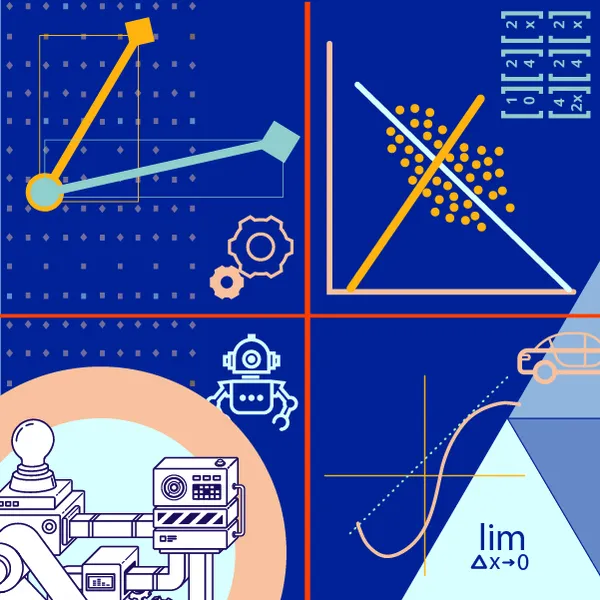
Mathematics for Machine Learning 
This specialization provides a comprehensive introduction to the mathematics needed for Machine Learning and Data Science. Learn the fundamentals of linear algebra, multivariate calculus, and dimensionality reduction with Principal Component Analysis. Gain the prerequisite mathematical knowledge to take more advanced courses in Machine Learning. ▼
ADVERTISEMENT
Course Feature
![]() Cost:
Cost:
Free
![]() Certificate:
Certificate:
Paid Certification
![]() Language:
Language:
English
Course Overview
❗The content presented here is sourced directly from platform. For comprehensive course details, including enrollment information, simply click on the 'Go to class' link on our website.
Updated in [June 30th, 2023]
This Mathematics for Machine Learning specialization provides an overview of the mathematical concepts required for Machine Learning and Data Science. The courses cover Linear Algebra, Multivariate Calculus, and Dimensionality Reduction with Principal Component Analysis. Through these courses, learners will gain an intuitive understanding of the underlying mathematics and how it relates to Machine Learning and Data Science. Learners will also gain the prerequisite mathematical knowledge to continue their journey and take more advanced courses in Machine Learning.
[Applications]
The application of this course is to provide a strong foundation in mathematics for those interested in pursuing further studies in Machine Learning and Data Science. It can also be used to gain a better understanding of the mathematics behind Machine Learning and Data Science, and to gain a better understanding of the algorithms used in these fields.
[Career Paths]
[Job Position Path]Data Scientist
Data Scientists are responsible for analyzing large amounts of data to identify trends and patterns, and then using those insights to develop strategies and solutions. They use a variety of tools and techniques, such as machine learning, statistical analysis, and data mining, to uncover insights from data. Data Scientists must be able to interpret and communicate their findings to stakeholders, and be able to develop data-driven solutions to complex problems.
Data Scientists must have a strong background in mathematics, statistics, and computer science, as well as a deep understanding of the domain they are working in. They must be able to work with large datasets, and be comfortable with programming languages such as Python, R, and SQL.
[Development Trend]The demand for Data Scientists is growing rapidly, as organizations increasingly rely on data-driven decision making. As the amount of data available continues to grow, the need for Data Scientists with the skills to analyze and interpret it will only increase. Data Scientists must stay up to date with the latest technologies and trends in the field, and be able to adapt to changing requirements. Additionally, Data Scientists must be able to work with a variety of stakeholders, from technical teams to business executives, in order to ensure that their insights are effectively communicated and implemented.
[Education Paths]
The recommended educational path for learners is to pursue a Bachelor's degree in Mathematics, Computer Science, or a related field. This degree should include courses in linear algebra, multivariate calculus, and dimensionality reduction. Additionally, learners should have a strong background in programming and data analysis.
The development trend for this educational path is to focus on the application of mathematics to machine learning and data science. This includes courses in optimization, probability, and statistics, as well as courses in artificial intelligence and deep learning. Additionally, learners should be familiar with the latest tools and technologies used in machine learning and data science, such as Python, TensorFlow, and Keras.
Course Provider
Provider 's Stats at AZClass
Discussion and Reviews
0.0 (Based on 0 reviews)
Explore Similar Online Courses

Introduction to CAD CAM and Practical CNC Machining

Golang Course - Session 15: Goroutines channels

Python for Informatics: Exploring Information

Social Network Analysis

Introduction to Systematic Review and Meta-Analysis

The Analytics Edge

DCO042 - Python For Informatics

Causal Diagrams: Draw Your Assumptions Before Your Conclusions

Whole genome sequencing of bacterial genomes - tools and applications

How to Pitch & Get Brand Deals Correctly Without a Social Following

Traditional Irish Sean-nos Singing Beginner 2


Start your review of Mathematics for Machine Learning